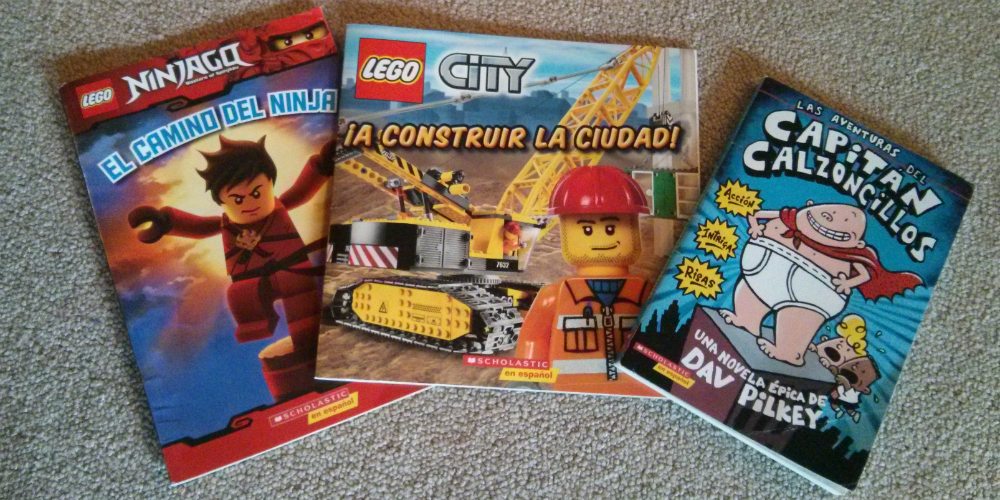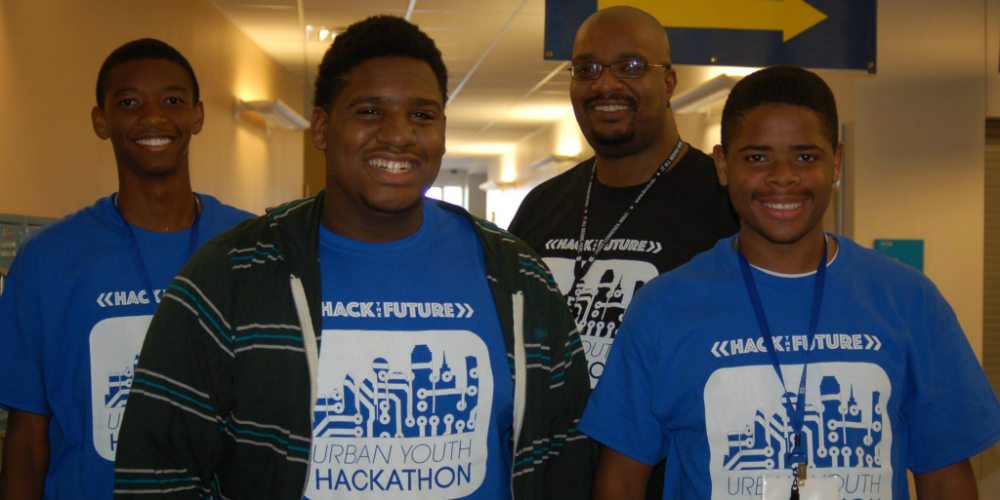
I started learning Spanish when I was four years old. My birthday is in late October, and according to the tag on the inside of my Toughskins, I was a husky child – although only slightly above average size for Texas children. My parents figured that I was old enough, or at least large enough to start kindergarten, so they enrolled me in a small private school that accepted slightly young, husky children. It just so happened that Spanish was a regular part of the curriculum, so I was exposed to the language early and became slightly obsessed with it. I studied it all through high school, picked it up as a second major in college, and I even served as an IT education volunteer with the Peace Corps in the Dominican Republic.
Fast forward to 2010 when my wife (also a fairly techie Returned Peace Corps Volunteer) and I were expecting our first child. We decided that since we are both bilingual we wanted to raise our son that way. We consider it a gift that we want to pass on, and we felt that it would be almost criminal not to do so. After a bit of research, we chose the OPOL (One Parent One Language) approach. Supposedly, this method carries the smallest risk of making your kid crazy and mad at you for the rest of his or her natural life. Because my Spanish is a little better than my wife’s, and I don’t really have a detectable Gringo accent (thanks, Mom and Dad, for that early exposure), I speak only Spanish to my son while my wife speaks to him in English. I started reading books in Spanish to him while he was still in the womb, so by the time he was born, it felt completely normal to speak to him in a language of which I am not a true native speaker.
It’s a bit of a life-long experiment, but so far it’s working fairly well. I had read a lot of stories about children being raised with the OPOL method refusing to speak one of the two languages, but so far, our son hasn’t had too many issues. There are times when he chooses to speak to me in English, but I don’t force him to speak in Spanish, because I don’t want him to see it as a negative thing that he’s required to do – especially since he knows I speak English. But thanks to a great bilingual daycare in DC, and then my wife’s job moving us to Paraguay, we’ve enjoyed lots of language support outside of the home. This is a crucial component of developing bilingualism. My Spanish is pretty good, but there’s no way our son could have achieved his current level of fluency from me alone. His closest friends are US expat kids who primarily speak English, so he definitely has a preference for that language, but he’s still very comfortable in both languages – and that was always the primary objective of our mission.
However, my son is quickly entering the age where his mind is most fertile for me to sow the seeds of tech-geekiness. To my great pleasure, he loves Legos, superheroes and Hot Wheels. Heck, he even loves dubstep music. I want that love to grow and blossom into computers, engineering, calculator watches, and ultimately Stark Industries. Okay, I’ll be content as long as my son is happy and pursuing something he loves, but I won’t mind if he ends up pursuing that passion while wearing an Iron Man suit. The issue I’m running into is that a lot of the resources I’m finding to lead my son down the path are either in English, or the Spanish versions just aren’t as cool.
Don’t get me wrong. There are tons of great books and other Spanish language materials for kids and toddlers. But in my efforts to expose my son to really techie things, the resources in English seem to be more plentiful. For example, I want to introduce my son to programming with apps like Scratch Jr and Tynker, but like most apps in that genre, they are in English (although Scratch Jr’s primarily graphical interface makes it almost language independent). And I know that this is my own personal bias coming into play, but some cartoons and movies are more enjoyable in their original languages. With many of the dubbed versions, some things just get lost in translation. I do have to point out that this works both ways. Pocoyo is way better in Spanish, but I digress. So as far as moving forward is concerned, the way I see it, I have three options:
Option 1 – Drop OPOL and just switch to English. Okay, so this isn’t really an option. Even though my son has a pretty solid foundation in Spanish, next year he’ll be starting kindergarten at an American school where the instruction is all in English. With languages, if you don’t use it, you lose it. We’ve invested too much time and energy, and it would just feel weird to speak to him in English now.
Option 2 – Keep doing everything all in Spanish. While I’m watching movies or shows with him, I could just stick to shows that are available in Spanish. Many cool and funny things would be lost in translation, but it wouldn’t be the end of the world. I could do the same for apps and games, but this would eliminate a huge number of really awesome resources. So, yeah, option 2 is out as well.
Option 3 – One word, two languages: Spanglish. I’m interested in the future. And as the Oracle told Neo, “the only way to get there is together.” I can continue to speak to my son primarily in Spanish, but when appropriate or necessary, just use English for certain words. And we can watch content in either language. In my opinion, this is the best option for a number of reasons. First of all, I’m quite familiar with general computer and IT Spanish vocabulary, and a number of the words are English words. When my son was three, he said “Papi, in English we say iPad, pero en español se dice iPad.” His Spanish version basically sounded like iPod. This will make some things a lot simpler, especially when we try to introduce programming tools like Scratch. If my son were really weak in Spanish, we would probably stick with option 2. But because we do live in South America, and his current environment requires that he speak Spanish, we think he’ll be fine.
What we’re ultimately aiming for is a happy, healthy, geeky, bilingual child. Language and geekiness are both cultural, and it will be a bit of a complicated dance to instill them into our children. At times we may have to make slight sacrifices of one language for the sake of the other, but the possible end products are way too awesome for us not to try it. If you’re interested in raising your own little geeks to be bilingual, check out the following resources:
- Language Strategies for Bilingual Families: The One Parent One Language Approach by Suzanne Barron-Hauwaert – As the title suggests, this details the OPOL approach to raising bilingual children.
- Raising a Bilingual Child by Barbara Zurer Pearson – A good book with advice about how to create a positive bilingual environment.
- Multilingual Living – A great website with lots of information and and resources for raising bilingual children.




This is a really great article – thanks! I’m running into challenges raising my little geeklet bilingually because I’m not bi-lingual. My son is enrolled in a french immersion primary school and his french abilities have exploded this year (grade 1). But, I’m of very little help to him as I know speak (bad) english. 🙂 I’m the links you provided help me find resources to help me manage my particular situation.
PS. I 110% agree that kids have a huge advantage in life by being raised bi-lingual. The advantages are are hard to understate!
Our own experience with our two boys was that they were fully bilingual (German, English) until they started school. Then English started to take over and they had no formal instruction in German. However, as my wife and I continued to speak regularly German at home, our conversations, until they left for college, developed into a “two-way street”: We would talk to them in German – they would answer in English. When we had German visitors, they would quite easily switch to German.
Today, when we are alone with them (without their English-speaking wives), we often switch to our old customs: we German, they English. While they still understand German perfectly well, their speaking abilities have clearly suffered due to a lack of practice.
With our grand children we now use our German gamesforlanguage games both for German and French, but we don’t see them often enough to make either language “stick” yet…